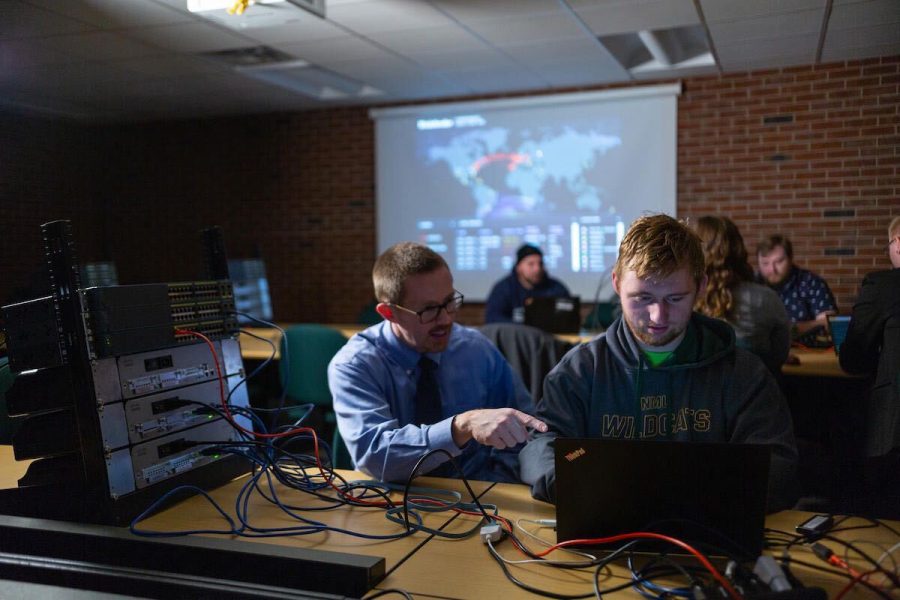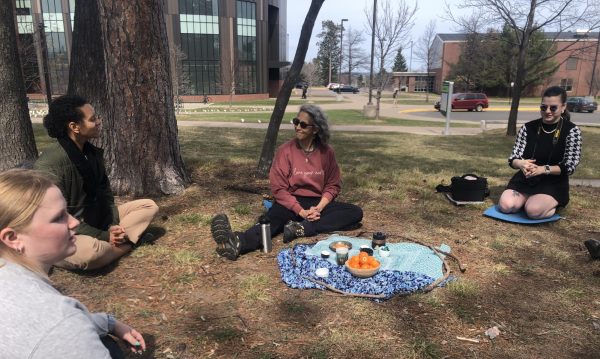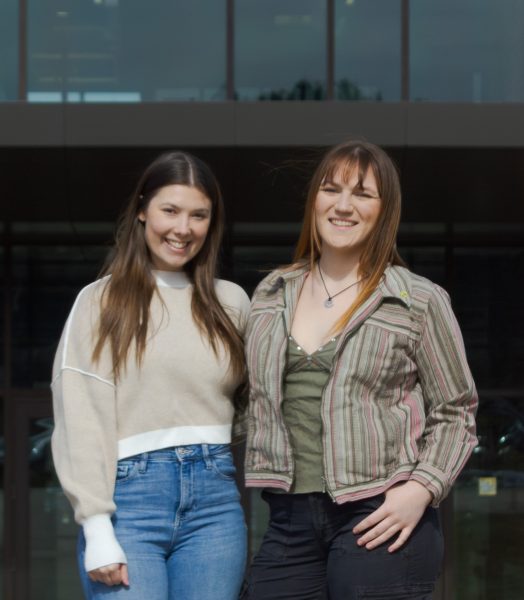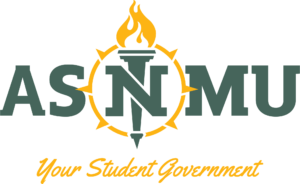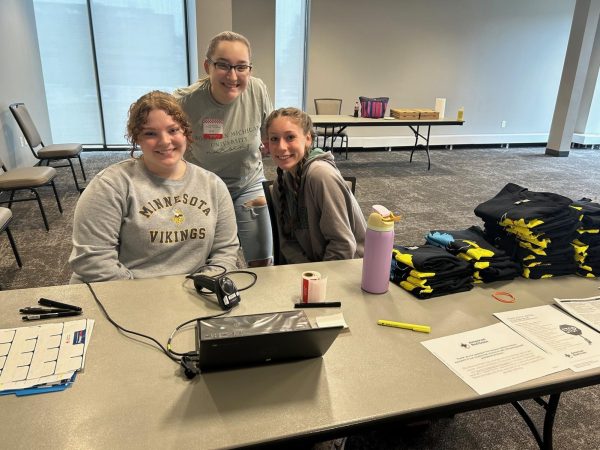SCA teaches cybersecurity with web application hacking event
Students will have the opportunity to learn web application hacking, improve skills and put them to the test while breaking into a vulnerable web application with the Student Cybersecurity Association event.
Photo courtesy of Matthew Vogt IN THE LAB—Jim Marquardson, student adviser for information assurance & cyber defense, in the Upper Peninsula Cybersecurity Institute working with a student. The UPCI is the only facility of its kind in the U.P. and home to a community-based resource for developing and diversifying a strong cybersecurity workforce in the U.P. for students.
September 8, 2021
Student Cybersecurity Association hosted their first event of the semester with the web application hacking event. Those who attended learned how to install the tools necessary to test the security of websites and practice on a website that SCA has set up. The event was held at Harding Hall 229 yesterday from 6-8 p.m.
Students who were interested in going to the event would have needed to bring their laptops and have Virtualbox and Parrot installed. Students also needed to import the OVA file as a new virtual machine in Virtualbox. Anyone can attend the event with minimal knowledge necessary.
SCA is an extracurricular activity for students interested in learning more about cybersecurity. SCA participates in events ranging from developing skills in ethical hacking to Capture The Flag competitions. The SCA webpage said that a CTF competition is a cybersecurity competition featuring a series of challenges for those who participate.
“There is a ‘flag’ (usually an alpha-numeric sequence) awarded for solving each challenge. They are designed to test skills related to hacking into or defending computer systems,” SCA webpage said. “The Student Cybersecurity Association works to develop these skills through workshops, training sessions, and club activities such as virtual lab environments (such as TryHackme).”
SCA webpage said that students who have attended physical CTF competitions in the past with skills learned from SCA and NMU. Many of these events are still on SCA’s radar with numerous of these events being virtual to accommodate safety protocols with the pandemic.
Matthew Vogt, president of SCA and senior computer science major, said SCA helps students supplement university coursework by practicing skills learned in class in real-world applications. SCA also tries to increase cybersecurity awareness and knowledge across the local community.
“When joining SCA, students will have access to various levels of tools that include: the Upper Peninsula Cybersecurity Institute’s Automotive Hacking Dashboard, Internet of Things hacking kits and more,” Vogt said. “Students also will improve their skill set, develop professional connections and receive support if they wish to pursue a certification.”
The UPCI is the only facility in U.P. and one of six statewide. The institute offers both non-degree and industry credentials relevant to emerging careers in cybersecurity. UPCI’s webpage said that the institute augments NMU’s existing cyber defense bachelor’s degree and provides additional career exploration and training opportunities with U.P. K-12 school districts and postsecondary institutions.
“Statewide hubs such as the one at NMU operate as a physical extension of the Michigan Cyber Range, the nation’s largest unclassified cyber range,” UPCI webpage said. “Hubs offer more than forty industry-recognized certifications, exercises and workshops aimed at qualifying individuals for positions and contracts in cybersecurity fields.”
Anyone with an interest in cybersecurity is welcome to join SCA. Vogt said that there are no restrictions to join although being familiar with computers is a big help. Meetings are typically held in the Cyber Lab, located in Harding Hall room 229 with a day and time to be announced.
Students interested in joining SCA can sign up via the Hub. Any questions about SCA can be directed to Vogt at [email protected] or SCA at [email protected].





















